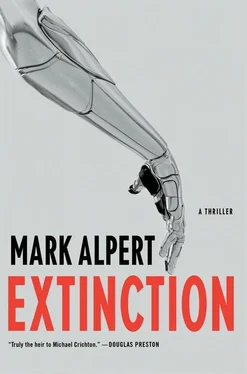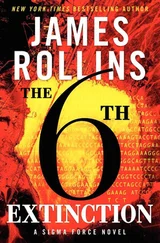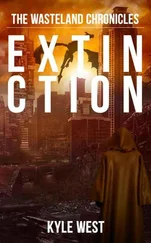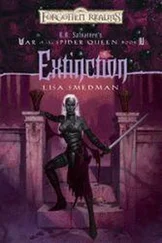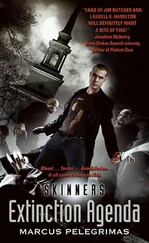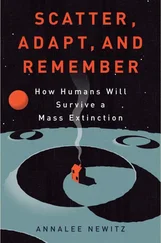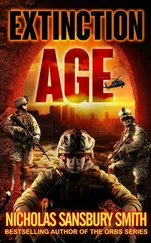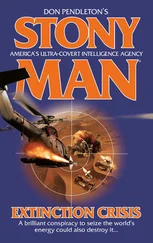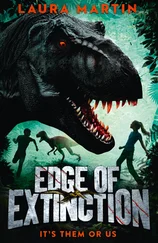Private Dugan didn’t respond, and neither did his father. That was the usual reaction. They thought he was bullshitting them, but they didn’t want to call him a liar.
“I see you’re skeptical.” Jim unbuttoned his shirt cuff. “But I’m going to prove it to you.” Smiling again, he rolled up his right sleeve and revealed the inner workings of his own prosthetic arm.
Jim had built half-a-dozen prostheses for himself, but he always used this particular model for his consultations. Its hand was covered with polyimide skin and looked just like his flesh-and-blood left hand. But everything from the wrist to the shoulder was exposed, all the wires and processors and actuators and hinges. It was the fruit of ten years of research and labor, and Jim displayed it proudly.
“Holy Christmas,” Henry whispered. “It’s a prosthetic. I didn’t even notice.”
Steve stared at the thing, bug-eyed. “The hand looks so normal. And it moves normal. But the rest of it…” His voice trailed off.
“It’s like the arm in that movie,” Henry said. “You know, The Terminator .”
So far, so good, Jim thought. He wanted them to get excited about the prosthesis. “Let me tell you a little story. Back in 1998, while I was still in the service, I lost my right arm. And I got sent to Walter Reed just like you did. But when I went to get fitted for my prosthesis, you know what they gave me? A piece of wood. With leather straps on one end and a steel hook on the other. Like the pirate in Peter Pan. That was the best the army could do. It was the most advanced prosthesis they had.”
Steve shook his head in sympathy.
“Well, I wasn’t pleased,” Jim continued. “So I decided to do something about it. After my discharge, I went to Pasadena, to the California Institute of Technology. You see, I’d majored in engineering when I was at West Point, and I’d learned a few things about communications systems when I worked in military intelligence. And I heard there was a professor at Caltech who had a company called Singularity that was developing a way to connect microchips to the human nervous system. So I went to this guy, Professor Arvin Conway, and said I wanted to work with him. I told him I was gonna get my Ph.D. and become an expert on prosthetics, and within ten years I was gonna build something better than the goddamn piece of wood the army gave me.” Jim raised his prosthetic arm and waved it around, demonstrating its full range of motion. The lubricated joints pivoted silently as he bent the wrist and elbow and shoulder. “And I succeeded. After ten years I started my own company and moved back here so I could custom-build prostheses for the soldiers at Walter Reed. It’s the best thing I’ve ever done in my life. Aside from raising my daughter, that is.”
Henry couldn’t take his eyes off the arm. “How much does it weigh, Mr. Pierce?”
“Just a couple of pounds more than an ordinary arm. I use lightweight, high-strength alloys for the joints and structural components. And I put in high-torque motors that efficiently convert the battery charge into mechanical energy. Here, let me show you.”
Jim got up from the table and went to the workbench that ran along the walls of his basement office. The bench held his machine tools—his lathe, vise, laser cutter, and 3D printer—as well as stacks of spare parts and circuit boards. He reached behind one of the stacks and picked up an incongruous item he’d placed there just before the Dugans arrived. It was a fifteen-ounce can of sliced peaches. Holding it in his prosthetic hand, he returned to the table.
“Okay, I got some Del Monte peaches here, packed in syrup,” he said. “The can is made of aluminum and you can dent it pretty easily, but it’s a lot harder to bust it open.” Jim tossed the can in the air, then caught it. Then he wrapped his mechanical fingers around the can and crushed it. Yellowish syrup spurted out of a split seam in the aluminum.
“Whoa!” Steve yelled. “Nice.”
His father laughed. “Hey, you got syrup on my shirt!”
Jim laughed, too. Although he’d done this demonstration many times before, it never failed to amuse him. “I busted the can, but I still can’t get the peaches out. I need to make the hole a little bigger.” He transferred the crushed and leaking can to his left hand and pointed his prosthesis at the thing as if he was going to punch it. But instead he extended the retractable knife he’d built into the hand. With a loud click, the blade emerged from a slot hidden between the middle and ring fingers.
Steve whistled. “Excellent.”
Jim plunged the knife into the already battered can and made a V-shaped cut in the aluminum. Then he retracted the knife and grasped the tip of the V with his mechanical fingers. “I wouldn’t do this with my left hand,” he said as he peeled back a triangular strip. “The edges of the aluminum are pretty sharp. But my right hand is covered with a skin of polyimide. That’s a lightweight, flexible material that’s resistant to heat and incredibly strong.”
He kept peeling until the can was torn in half. Syrup and peach slices glopped on the floor. Then he let go of the aluminum strip, stuck his fingers into the can, and gripped one of the remaining slices between his mechanical thumb and forefinger. He held the slippery piece of fruit up to the light. “But this is the most amazing thing right here. Did you ever think about how difficult it is to grasp a slice of peach without dropping or crushing it? The nerves in your fingers have to tell you how soft and slippery it is, and then your brain has to calculate exactly how much pressure to apply. It’s ridiculously complicated. I spent years trying to figure out how to simulate the process.”
He glanced at the Dugans. Their faces were rapt.
Jim threw the peach slice and the can into his wastepaper basket. Then he raised his prosthetic hand and rubbed the wet fingers together. “I decided to use a combination of pressure, temperature, and moisture sensors. I put hundreds of these tiny devices under the polyimide skin of the fingers. When I touch an object, the sensors collect the data and send it to this wire.” He pointed with his left hand at a cable running up the arm. Then he pulled his shirt sleeve all the way up and pointed at a metal base strapped snugly over his right shoulder. “The wire goes to this thing, which I call the neural control unit. Inside this unit is a wireless transmitter that sends the sensory data to a microchip implanted just below the skin of my shoulder. We do it wirelessly because you can’t have wires going through the skin. That can cause infection.”
Henry rose from his stool to get a better look at the electronics. “So what does the microchip inside your shoulder do?”
“It transfers the sensory information to my nervous system. The chip is connected to the sensory nerves that were severed when I lost my arm. Those are the nerves that used to feel the heat and pain and pressure applied to my skin. Now my sensors collect the same information and the microchip delivers it to the severed ends of my sensory nerves. And those nerves carry the information up to my brain.” Jim pointed to his head. “My brain analyzes the signals. It figures out the shape and texture of the object I’m touching and determines how to hold it. Then it sends its commands down to my shoulder via a different set of nerves, the motor neurons. I have another implanted microchip that’s connected to the severed ends of those nerves. This chip takes the commands from my brain and transmits them wirelessly to my neural control unit. Then the unit runs the motors in my prosthesis, making it move the way I want it to.”
Jim stopped himself. Because this was his life’s work, he loved to talk about it. He had to remind himself to slow down. He returned to his place at the table and focused on Private Dugan. “So, Steve, any questions so far?”
Читать дальше
